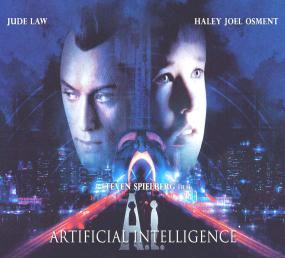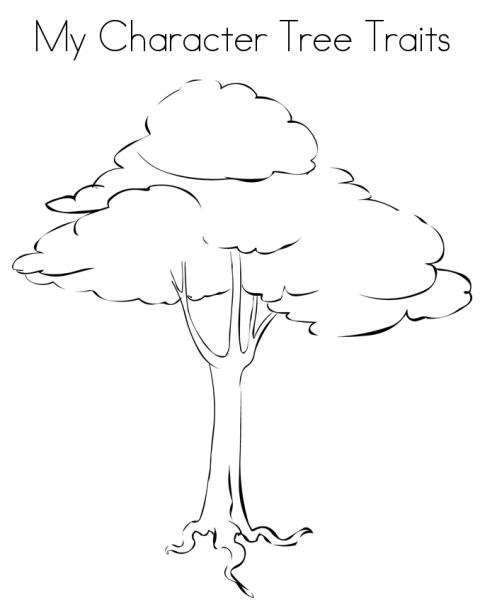
8304
.pdfV. Project work
Sum up the most widely spread Internet applications.
Make several groups and prepare a report about each Internet application with your own examples.
∙Getting news from the Internet;
∙Internet shops;
∙Internet travel agencies
∙Communication through the Internet
∙Earning money through the Internet
Pre-task: While listening make a list of advantages and disadvantages of using Internet for these applications in comparison with the traditional ways of getting news, buying something in the shops, spending holidays, and communicating with each other.
Group 1: Internet news |
ADVANTAGES |
DISADVANTAGES |
-What advantages has the group mentioned?
-Can you choose any news you like?
-Do you depend on time searching for news?
-What are the disadvantages?
-Is the Internet information always true?
-How about the yellow press? Is it available in the Internet?
Group 2: Internet shops
-What do you need to make a purchase?
-Are you able to buy anything you need?
-Are the goods always legal?
-Are the prices high?
-What is the advantage of traditional shop in purchasing food and clothes?
-Are you able to get a piece of advice from the shop assistant?
-Are you able to ask for help in the consumer department?
Group 3: Internet travel agencies
-Do they provide their clients with more full information?
-Do the sites contain any information about the clients' impressions on the trip?
-Is it convenient for the clients?
-Is the agent's opinion/advice important to you?
-Are you able to get any compensation in the case of your dissatisfaction with the trip?
20
Group 4: Communication through Internet
-What opportunities do these sites offer to the clients?
-Is it easy to find friends with common interests by the Internet
-Is it possible to find additional information about the people you communicate with?
-Are you sure that your correspondence is confidential and nobody can read it?
-Do you lack visual contact in communication?
Post-task: Make you own prediction about the future. Will the Internet communication replace traditional one completely?
VI. Work with the Internet
-Sum up the ideas about the advantages and disadvantages of using Internet. Add more ideas to the list.
-Read some more information about Internet disadvantages and the problem of security in your course books. http://www.buzzle.com/articles/advantages-disadvantages-internet.html http://www.youthvillage.co.za/2013/09/advantages-disadvantages-using- internet-2/ http://smallbusiness.chron.com/advantages-disadvantages-business-using- internet-business-activity-27359.html
-You are a reporter in a local newspaper. Write an article by the title: “Internet is conquering the world”.
21

UNIT V
COMPUTER TOMORROW
I.Lead in
1.Discuss the following quotations. Imagine you could talk to the people quoted. Explain how wrong their predictions were, using evidence from today's world.
THE TELEPHONE HAS TOO MANY SHORTCOMMINGS TO BE SERIOUSLY CONSIDERED AS A MEANS OF COMMUNICATION. THE DEVICE IS INHERETLY OF NO VALUE TO US.
Western Union internal memo 1876
Television will never be a serious competitor for radio because people must sit and keep their eyes glued to a screen; the average American family hasn't time for it.
The New York Times, 1939
The wireless music box has no imaginable commercial value.
Business response to appeal for investment in radio during the 1920s
I think there is a world market for maybe five computers.
Thomas Watson, chairman of IBM, 1943
2. What do you think has been the greatest advance in communications in last ten years?
Group work:
Work in a group of three and make your predictions about the future development in different IT areas. Each group will take one area.
-television
-radio
-telephone
-computer
22

II. Reading
-Have you heard about the Artificial intelligence?
-What is it? Make a definition of it.
-Compare your definition with the one below.
-What are the differences? Definition:
Artificial Intelligence is a branch of Science which deals with helping machines find solutions to complex problems in a more human-like fashion. This generally involves borrowing characteristics from human intelligence, and applying them as algorithms in a computer friendly way. A more or less flexible or efficient approach can be taken depending on the requirements established, which influences how artificial the intelligent behavior appears.
-Why do people need AI?
-What are the limitations of AI?
-What are the applications of the AI?
Read the article about the present level of development of AI and compare your ideas.
Predicting the future is always a hit and miss proposition writes Kevin Anderson.
In the 1940s, Thomas Watson, the head of IBM, famously predicted the world demand for computers might be as high as five.
And artificial intelligence has had its share of off-target predictions. AI researchers in the 1950s predicted that a computer would be the world chess champion by 1968. It took a few more decades than that.
But AI experts remain optimistic and are predicting that by the middle of the century, intelligent machines will be all around us.
AI is everywhere
In fact, they point out that artificial intelligence already pervades our lives.
Machines will gradually become more intelligent and become more pervasive.
Fuel injection systems in our cars use learning algorithms. Jet turbines are designed using genetic algorithms, which are both examples of AI, says Dr Rodney Brooks, the director of MIT's artificial intelligence laboratory.
Every cell phone call and e-mail is routed using artificial intelligence,
23

says Ray Kurzweil, an AI entrepreneur and the author of two books on the subject, The Age of Intelligent Machines and The Age of Spiritual Machines.
"We have hundreds of examples of what I call narrow AI, which is behaviour that used to require an intelligent adult but that can now be done by a computer," Mr Kurzweil says.
"It is narrow because it is within a specific domain, but the actual narrowness is gradually getting a bit broader," he adds.
The near future
Right now, Dr Brooks says that artificial intelligence is about at the same place the personal computer industry was in 1978.
In 1978, the Apple II was a year old and Atari had just introduced the 400 and 800. The choice of personal computers was pretty limited and what they could do was also relatively limited by today's standards.
“Who would have thought by 2001, you would have four computers in your kitchen?” said Dr Rodney Brooks, director MIT AI Lab
The metaphor may undersell AI's successes. AI already is used in pretty advanced applications including helping with flight scheduling or reading X-rays.
Within 30 years, scientists believe that they will have an understanding of how the human brain works that will give them "templates of intelligence" for developing strong AI.
And Dr Brooks says that by 2050, our lives will be populated with all kinds of intelligent robots.
Sounds outlandish? "Who would have thought by 2001, you would have four computers in your kitchen," he says, pointing to the computer chips in our coffee makers, refrigerators, stoves and radios.
Gradual change
But will our hyper-intelligent coffee makers in 2050 suddenly decide to kill us? Or will humans be made redundant by a legion of intelligent machines?
A scientist does not just wake up and decide to build a robot with emotions, Dr Brook says
No. Firstly, Dr Brooks and Mr Kurzweil believe that we will not wake up one day to find our lives populated with all manner of artificially intelligent devices.
Referring to Spielberg's movie AI in which a company creates a robot that bonds emotionally like a child, Dr Brooks says: "A scientist doesn't wake up one day and decide to make a robot with emotions."
Despite the rapid advance of technology, the advent of strong AI will be a gradual process, they say.
"The road from here to there is through thousands of these benign steps," Mr Kurzweil says.
24
Look through the article once again and extend these ideas (give examples from the text)
1.AI has already become a part of our life.
2.AI has a vast future ahead.
3.AI is not well developed yet.
4.Creating of AI is a tedious process.
III. Vocabulary focus
1.Find words in the article which mean:
a sample of intelligence, to penetrate in our world, invalid forecast, widespread, AI arrival, It is incredible, to underestimate the success
2.Read these expressions and try to put them into the appropriate column of the table to speak about:
The benefits of AI |
The downsides of AI |
To take over our lives
To encourage progress
To limit freedom
To misuse data
To supersede people
To increase life expectancy
To enhance productivity
Try to continue this table in pairs
IV. Work with the Internet
Look through the Internet and find the information about the advantages and disadvantages of AI development. Get ready to participate in group discussion. Discussion:
Group1: For the development of AI. Group2: Against the AI development.
Chairman: Leads the discussion and prepares questions.
Discuss these problems in groups:
-Do people really need AI?
-Can machines be creative?
-How intelligent are human beings?
-Can machines match the reality?
-Is AI a friend or an enemy?
25

UNIT VI
JOBS IN COMPUTING
I.Lead in
The tree represents a person with his/her skills and personal qualities. LEAVES: personal qualities and skills
Each student will get this tree. Put your qualities and skills connected with working with the computer in the leaves.
-Exchange the trees with each other. Study the trees and make a presentation of each other’s qualities and skills
-After each presentation the whole group tries to find the appropriate job for each candidate trying to explain their choice.
26
Here you can find some ideas:
∙ |
Having ambition |
∙ |
Being competent |
∙ |
Working hard |
∙ |
Being a good team player |
∙ |
Getting on with people |
∙ |
Having good communication skills |
∙ |
Being adaptable |
∙ |
Having patience and tenacity |
∙ |
Looking smart |
∙ |
Having logical reasoning |
∙ |
Having sense of humor |
∙ |
Having problem solving skills |
∙Being motivating
What computer specialties do you know?
What are the responsibilities of different computer specialists?
II.Reading:
1.Have you chosen an appropriate job for yourself? What responsibilities are you suitable for?
Here you can find some ideas:
∙to work on the full range of development activities – analysis, design, coding, testing and implementation
∙to perform formal analysis of operational needs
∙to run data-processing equipment (data control and editing)
∙to facilitate systems integration
∙to provide messaging, data storage, networking
∙to develop and maintain web-based applications
∙to possess analytical problem solving skills
∙to handle customer support calls
∙to set up equipment
∙to maintain security of documents and customers
∙to install, configure and maintain software and hardware systems
∙to assess potential risks
∙to conduct trainings to new hires, users and technical teams as needed
∙to analyze system issues and provide resolutions.
∙to recommend process improvements
∙to ensure system reliability, security, integrity and performance
∙to conduct computer diagnostics
2.Read these two extracts from the job advertisements. Compare your ideas.
27

Relief International
Web Designer-Developer
Summary
Relief International, a humanitarian non-profit agency with the vision and commitment to saves lives and sustaining livelihoods, is currently in search of Web Designer/Developer. This position is based in Los Angeles, California. Under the supervision of the Executive Director, the incumbent is responsible for developing, organizing, implementing, and maintaining Web services for the company. The incumbent will provide technical support and assist in the implementation and maintenance of company computing systems. The incumbent also provides on-going technical and analytical support to end-users and colleagues.
Primary Responsibilities
•Develop and maintain web-based applications utilizing strategic, technical and user-friendly approaches.
•Utilize web and graphics development technologies to produce and implement internet and intranet solutions.
•Communicates and collaborates with staffs to devel op recommendations for web-related services. .
•Keeping up-to-date on the latest web site, user experience, and production technologies and proven best practices.
• Meticulous testing and troubleshooting of web pages across multiple browsers, platforms, operating systems.
•Produce and deploy electronic newsletters that include a diverse set of articles; be knowledgeable about common email delivery software, metrics and best practices.
•Consults with managerial and technical personnel to clarify problem intent, identify problems, and suggest changes.
Qualifications
•Equivalent to a bachelor’s degree from an accredit ed institution in computer science or related field.
•Two to four years experience in web design.
•Knowledge of Content Management Systems, PHP, HTML (hand coding, Dreamweaver and FrontPage), CSS, Javascript, Flash, and, ActionScript, MySQL/SQL/ XML/ XHTML.
•Facility with all web publishing and common design programs including Quark, InDesign, Photoshop, Illustrator, Acrobat and other design tools.
•Experience developing user interfaces, layouts, br anding, flash animations, other digital media to facilitate the distribution of digital information to all stakeholders.
•Knowledge of common email delivery software, metri cs and best practices. •Must possess analytical problem solving skills, an d demonstrate the ability to handle projects.
28

Red Mountain Machinery
Sr. Database Administrator - AZ
Job Summary
All database positions in the company form the sub-department of IT known as “Information Services”. The overall task of IS is t o oversee all aspects of data entry, create and maintain reports, queries, and provide first-level data analysis to all departments, based on need. IS the primary contact for all aspects of TrakQuip and all Microsoft Access databases.
The position of Senior Database Analyst will oversee the overall progress of Information Services. The Senior Database Analyst’s primary focus will be working on larger projects that serve the company’s strategic needs, and devising and implementing strategies for data entry and data consistency. This position will also be ultimately responsible for all work done by Information Services.
Essential Duties and Responsibilities
•Supervising, training, setting priorities, and reviewing progress of Junior Database Analyst. As the Junior Database Analyst will report directly to the Senior Database Analyst, it will be important to ensure that the flow of communication between Information Services and the rest of the company is consistent.
•Resolving software issues
•Setting priority of all projects
•Maintaining SQL databases
•Overseeing creation of Access databases
•Considering data entry strategy and other procedu ral items
Desired Minimum Qualifications Education and Experience:
• 4 year college degree, not necessarily in a relat ed field
•4 years related experience, not necessarily in a related field or industry
•Advanced knowledge of database structure
•Proficiency with SQL/T-SQL language, Exp. w/VBA conversion to .net, ASP.net, XML, Documentation, Sharepoint & Webparts Development, Source Safe.
•Advanced knowledge of MS Access and programming in Visual Basic for Access
Necessary Knowledge, Skills and Abilities:
•Advanced knowledge of Microsoft Word, Access, Exc el
•Problem solving skills
•Concepts of intermediate math
•Ability to handle multiple tasks.
29
